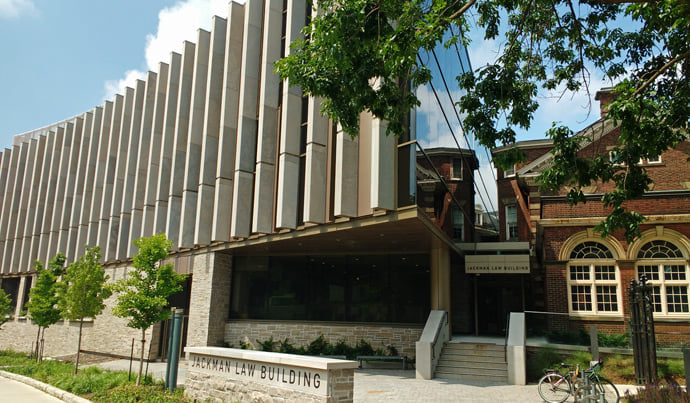An international human rights organization is severing ties with the University of Toronto over the Valentina Azarova hiring controversy.
Amnesty International informed UofT president Meric Gertler this week it is ending a partnership with the law school’s International Human Rights Program (IHRP) to protest handling of the affair.
Amnesty also said it was supporting the Canadian Association of University Teachers in its boycott of UofT until the controversy is settled to its satisfaction.
In their letter, Amnesty leaders say they cannot accept the conclusion of a retired Supreme Court of Canada justice that a Jewish judge did not interfere in Azarova’s appointment because of her history of scholarship that was highly critical of Israel.
“Like the CAUT, we are greatly concerned about the sequence of events that led to the Faculty of Law’s decision not to appoint Dr Valentina Azarova as IHRP Director. Having read the report by retired Supreme Court of Canada Thomas Cromwell, we are unable to take at face value the claim that the hire was frozen solely due to immigration issues, rather than external influence from a major university donor critical of Dr. Azarova’s academic work on Israel and Palestine.”
“We regret that we have been placed in a position to suspend our relationship with the University of Toronto, the Faculty of Law, and the IHRP until such time as the CAUT censure has been lifted and a sustainable roadmap for the future of the IHRP has been put in place.”
The letter was signed by Joanne Mariner, director of Amnesty’s crisis response team; Ketty Nivyabandi, secretary general of its Canada operation and Sam Dubberley, head of its Evidence Lab.
Amnesty said since 2017 it has worked with the IHRP on the group’s Digital Verification Corps. It trains students from seven universities across the globe on the process and practice of open source research for human rights advocacy and accountability.
Amnesty’s cutting of ties is the latest blow to UofT’s prestige. In recent weeks former Governor-General of Canada Michaelle Jean has cancelled an address at the university on the need to eliminate racial discrimination in Canada.
CAUT, which represents 75,000 university teachers across the country called the Azarova decision an attack on academic freedom and passed a motion of censure against UofT. The motion asks all members not to accept appointments or speaking engagements at UofT and not to attend conferences there until Azarova is hired.
The controversy started last September when Azarova, a Russia academic living in Germany, was recommended by a search committee to become director of the law school’s International Human Rights Program.
Her supporters allege that the law school dean suddenly ended negotiations over terms of employment after a wealthy Jewish donor objected to Azarova’s long history of highly critical writing and association with anti-Zionist groups.
The allegations against that donor, Judge David Spiro of the Tax Court of Canada, are now under investigation by the Canadian Judicial Council.
In an effort to cool the controversy, the university commissioned retired Supreme Court of Canada Justice Thomas Cromwell to investigate. He reported in March that Azarova’s hiring was scuttled by immigration issues and donor interference played no role in the affair.
Aside from Jewish organizations such as B’nai Brith and the Centre for Israel and Jewish Affairs, the university has been supported by Scholars for Peace in the Middle East, representing 50,000 academics from across the globe, with chapters on three Canadian campuses.
